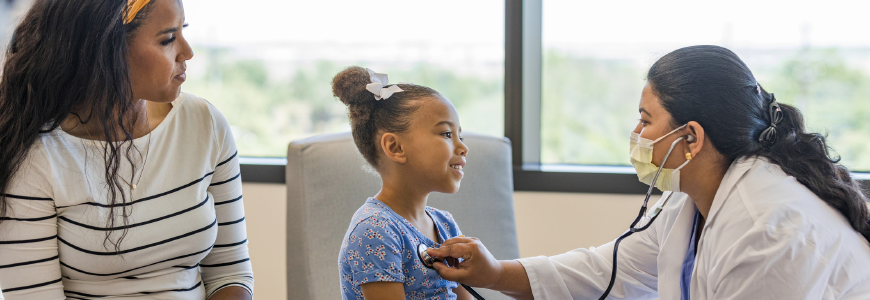Common aortic conditions
The causes of aortopathy may not always be obvious or understood, but some conditions are well known for causing aortic abnormalities. “When people think of aortopathy, they often think of diseases like Marfan syndrome or conditions like a bicuspid aortic valve,” says Milazzo.
Marfan syndrome is a well-described genetic disorder that includes specific physical features, including aortopathy. The disease can be fatal, so early identification and advanced testing and treatment are vital. “With the aortopathy program, we can coordinate advanced genetic and cardiovascular testing as well as medical and surgical treatments,” says Milazzo. “For Marfan syndrome, we also discuss physical activity restrictions which can preserve life.”
Bicuspid aortic valves are associated with aortopathy, aneurysms, aortic dissections, and other complications. As with Marfan syndrome, the program offers a multidisciplinary approach. For life-threatening malformations of the aortic valves or root, Duke has pioneered the living root/partial heart transplant, implanting valves that will continue to grow with infant recipients throughout their lives, with the research published in the Journal of the American Medical Association.
To refer a patient, call Duke Heart Center at 919-681-5816 or log in to Duke MedLink.
Cutting-edge care
The aortopathy program brings together physicians and specialists across multiple disciplines to coordinate diagnosis and care for aortic abnormalities. With the latest developments in medical care and clinical trials that are advancing treatments, Duke has given insight into specific therapies for this patient cohort, Milazzo says.
For pediatric patients, pediatric cardiologists and medical genetic counselors form the core of the team, working together at the point of care. They coordinate with pediatric specialists in physical and occupational therapy, cardiothoracic surgery, rheumatology, psychiatry and psychology, pain management, and nutrition to connect patients with resources across the system and tailor services to the individual patient’s needs.
Advancements in treatment options for aortopathy, along with dedicated programs like Duke’s, are now extending the life expectancy for children and adults. Patients benefit from being seen at a center like Duke where the pediatric and adult programs are integrated and allow a seamless transition of care no matter the age.
“We are happy to discuss any patient with a suspicion of genetic disease that could include aortopathy,” says Milazzo. “If you’re on the fence, or the data doesn’t fit a diagnosis perfectly, we welcome you to reach out to us. We can discuss cases even in advance of referral. We’re always willing to talk about cases which could benefit from Duke’s expertise.”
